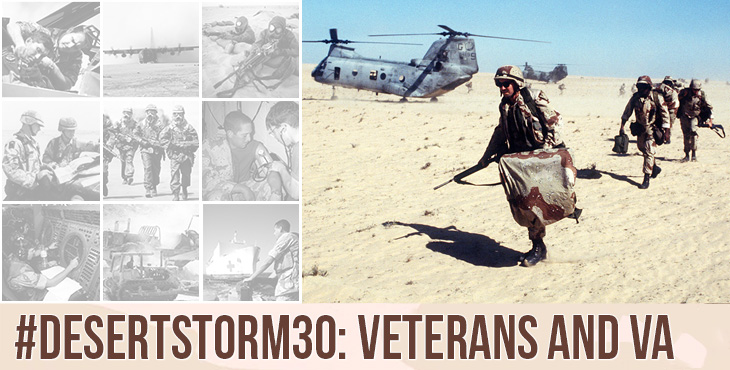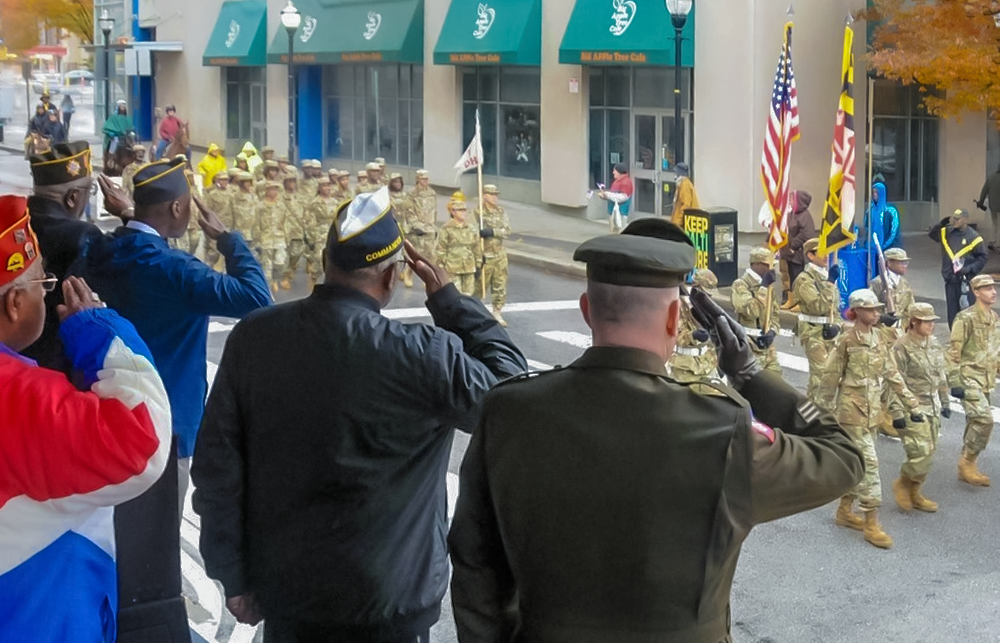Desert Storm was a short war, but Veterans from that era still have many different avenues and programs to connect with VA. Below is information on how Desert Storm Veterans can engage with VA.
Get a free health exam
VA’s Gulf War Registry Health Exam alerts Veterans to possible long-term health problems that may be related to environmental exposures during their military service. The registry data helps VA understand and respond to these health problems more effectively.
Important points about registry health exams:
- Free to eligible Veterans and no co-payment.
- Not a disability compensation exam or required for other VA benefits.
- Enrollment in VA’s health care system not necessary.
- Based on Veterans’ recollection of service, not on their military records.
- Veterans can receive additional registry exams, if new problems develop.
- Veterans’ family members are not eligible for registry exams.
VA’s Gulf War Registry Health Exam alerts Veterans to possible long-term health problems that may be related to environmental exposures during their military service. The registry data helps VA understand and respond to these health problems more effectively.
Contact your local VA Environmental Health Coordinator about getting a Gulf War Registry health exam.
Register for the Airborne Hazards and Open Burn Pit Registry
Veterans who are eligible for the Gulf War Registry may also join the Airborne Hazards and Open Burn Pit Registry, which includes additional data related to airborne hazards.
- The registry is a database of information about Veterans and service members collected through a questionnaire.
- OEF/OIF/OND/OFS Veterans and service members who have deployed to the Southwest Asia theater of operations on or after August 2, 1990, as well as those who have deployed to Afghanistan or Djibouti after September 11, 2001, can use the registry.
Check your eligibility and sign up through an online questionnaire.
Learn more about the burn pit registry in this Borne the Battle Benefits Breakdown.
Get a mammogram or prostate exam
All women over 45 should get regular mammograms. VA recommends yearly mammograms by age 45, every other year by age 55, and regular mammograms at age 75+.
For men, screening tests often include a prostate specific antigen (PSA) blood test. For men between ages 55 and 69, talk with a healthcare provider about the pros and cons of screening.
More ways to engage with VA
Apply for health care benefits.
Apply for the GI Bill and related benefits.
Topics in this story
More Stories
VA and the Veterans Day National Committee (VDNC) invites cities, towns, and non-profit groups across the country to join us in showing appreciation for Veterans by applying to hold VA-recognized regional Veterans Day observances.
VA and the Veterans Day National Committee are now accepting entries for the 2025 Veterans Day Poster Contest. Submissions are due by 11:59 p.m. (EDT) on May 2, 2025.
Secretary Doug Collins announces VA’s shift to in-person work, ensuring a smooth transition while prioritizing service to Veterans.








Thanks for finally writing about > #DesertStorm30:
Veterans and VA – VAntage Point < Liked it!
When will the nightmares stop ? When will I not wake up screaming, covered in sweat, heart pounding ?
The way to stop the worst nightmares, is to talk to a licensed therapist. Be it at the VA or a private provider. However, at the VA there are employees who have also “been there”. The nightmares get less intense and less frequent the more you confront the ghosts in the conscience, they won’t linger in the subconscious to wake you up at night. It took a long time for me to sleep throughout the night, but at least I can do it half the time. (It never actually “goes away”.)
It’s a honor to serve in the US Army during Desert Storm. Remembering those who sacrificed!
Very Happy with the service you provide, Thanks